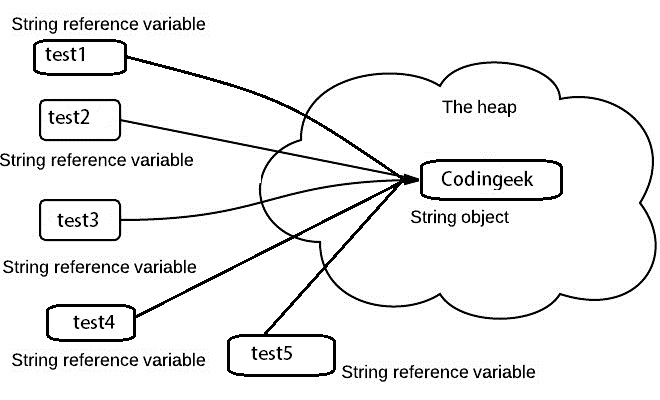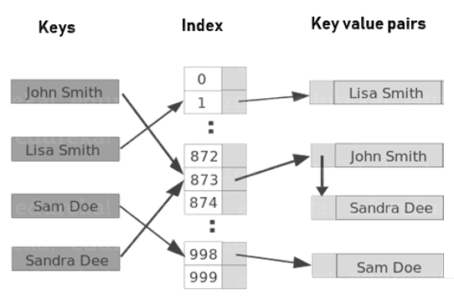Why Are Strings Immutable in Java? Finest Practices and Usage Instances
Wiki Article
What Is Immutable Strings and Exactly How It Functions
In the world of programs, understanding the idea of unalterable strings is extremely important for developing protected and robust applications. Immutable strings refer to strings that can not be changed after they are produced, making sure data honesty and predictability within the code. This essential concept plays a critical duty in various programs languages and offers a distinct method to dealing with information. By discovering the ins and outs of exactly how immutable strings function, one can reveal a world of benefits and opportunities that can raise the top quality and performance of software application advancement.The Basics of Unalterable Strings
Immutable strings, as a basic principle in shows, are character series that can not be changed when they are created. This means that when a string is assigned a value, that value can not be changed. In languages like Python and Java, strings are unalterable objects, leading to various effects in regards to memory administration and information integrity.One of the key advantages of immutable strings is that they give a sense of safety in data control. Considering that the web content of an immutable string can not be modified, it guarantees that the original data remains intact, decreasing the danger of unexpected adjustments throughout program implementation (Why are strings immutable in Java?). This residential or commercial property also simplifies debugging processes, as programmers can trust that once a string is defined, its value will not be inadvertently changed
Furthermore, unalterable strings assist in effective memory use. When a new string is produced based on an existing one, instead than changing the original string, the new worth is stored independently. This technique improves efficiency by decreasing memory fragmentation and streamlining memory allocation processes. In general, understanding the essentials of unalterable strings is critical for mastering programming principles and enhancing code effectiveness.
Advantages of Immutable Strings
Structure upon the protection and efficiency advantages of unalterable strings, their advantages include boosting code dependability and simplifying simultaneous programming jobs. By being unalterable, strings can not be modified after creation, which removes the risk of unintentional adjustments in the data they store. This integral immutability ensures that once a string is produced, its value stays continuous throughout the program's implementation, reducing the chances of insects triggered by unexpected alterations.Additionally, unalterable strings add to code reliability by making it much easier to reason concerning the state of a program. Because strings can not be changed, designers can rely on that a string will certainly constantly hold the exact same value, streamlining debugging and upkeep efforts. This predictability results in extra stable and reliable codebases.

Implementation in Programming Languages
Within numerous programming languages, the incorporation of immutable strings is a basic facet that affects just how data is handled and adjusted within code frameworks. The implementation of immutable strings varies across various programming languages, with each language providing its very own mechanisms to support this principle.

On the other hand, languages like C and C++ do not have integrated support for unalterable strings. Developers in these languages have to manually execute immutability by enforcing regulations within their code to protect against direct adjustments to string things.
Ideal Practices for Dealing With Unalterable Strings
When taking care of immutable strings in shows languages like Java and Python, adhering to ideal techniques makes certain safe and effective data control. One of the key best practices is to use StringBuilder or StringBuffer as opposed to straight adjusting strings, particularly when dealing with considerable concatenation procedures. These classes supply mutable alternatives for string adjustment, aiding to avoid unneeded memory allocations and boosting performance.Furthermore, when functioning with sensitive data such as passwords or API secrets, it is critical to stay clear of storing them as simple text in immutable strings. Making use of secure storage space devices like char ranges or specialized collections a knockout post for taking care of delicate info helps reduce security risks linked with immutable strings.
Real-world Applications and Examples
Discovering practical executions of unalterable strings in various markets discloses their considerable effect on information honesty and system reliability. In the healthcare field, immutable strings play a vital function in making sure the safety and confidentiality of patient information. By avoiding unauthorized modifications to delicate details such as medical documents and prescriptions, unalterable strings aid keep conformity with rigorous personal privacy guidelines like HIPAA.Monetary organizations additionally gain from the immutable nature of strings to improve the safety of customer data and deal documents. Immutable strings assist protect against scams and unapproved alterations to monetary information, supplying a robust defense against cyber dangers and ensuring the trust and self-confidence of clients.

Conclusion
In final thought, immutable strings are taken care of and unchangeable series of characters that use advantages such as string security and boosted performance in shows. They are carried out in different programs languages to guarantee data honesty and security. Finest methods for working with unalterable strings consist of staying clear of direct adjustments and making use of approaches that return brand-new string objects. Real-world applications of immutable strings include data encryption, caching, and string manipulation tasks.Immutable strings refer to strings that can not be changed after they are produced, guaranteeing information integrity and predictability within the code. When a new string is developed based on an existing one, rather than modifying the original string, the new worth is stored separately.In languages like Java and Python, strings are unalterable by default, implying that when a string things is created, its value can not be changed - Why are strings immutable in Java?. Ideal techniques for working with immutable strings consist of avoiding direct alterations and utilizing techniques that return new string things. Real-world applications of unalterable strings consist of information security, caching, and string control jobs
Report this wiki page